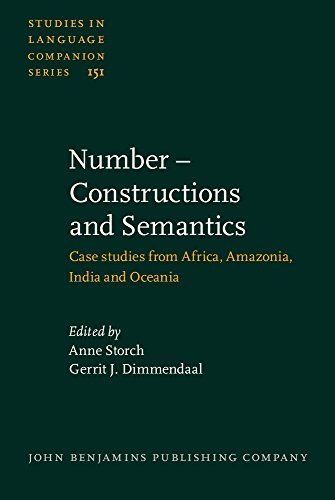
Number Constructions and Semantics Case studies from Africa, Amazonia, India and Oceania
This book is the outcome of several decades of research experience, with contributions by leading scholars based on long-term field research. It combines approaches from descriptive linguistics, anthropological linguistics, socio-historical studies, areal linguistics, and social anthropology. The key concern of this ground-breaking volume is to investigate the linguistic means of expressing number and countable amounts, which differ greatly in the world’s languages. It provides insights into common number-marking devices and their not-so-common usages, but also into phenomena such as the absence of plurals, or transnumeral forms. The different contributions to the volume show that number is of considerable semantic complexity in many languages worldwide, expressing all kinds of extendedness, multiplicity, salience, size, and so on. This raises a number of challenging questions regarding what exactly is described under the slightly monolithic label of ‘number’ in most descriptive approaches to the languages of the world.